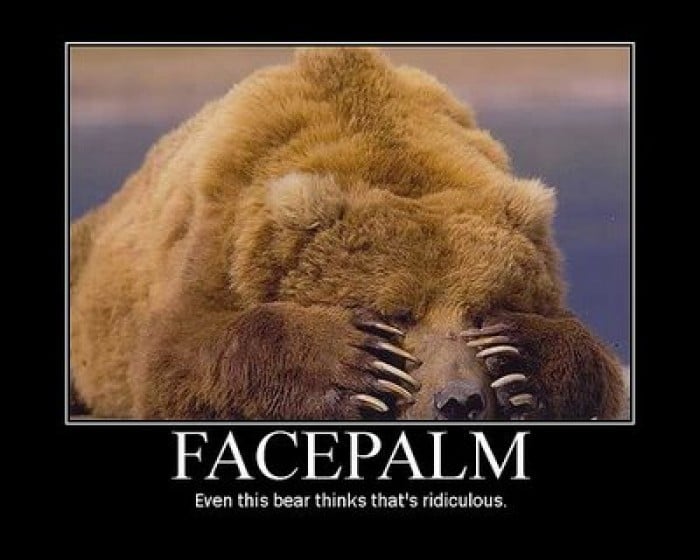
Forbes today had a blog post that made me smack my face in consternation. First of all, it was clearly written by someone who has zero grasp of the publishing world, but more importantly, it ignored several more realistic issues in ebooks that need to be addressed first. What was the author’s argument that had me foaming at the mouth? Read on…
Last December, Iwrote about an ebook killer app waiting to be built, and that I wanted for Christmas. I didn’t get it. But, with Apple’s introduction of iTunes Match, there’s a glimmer of hope that Apple (or Amazon or Google) could build my hoped-for app. So I figured I’d float my wish list again, before the Christmas rush. If you have an in with Steve, Jeff, Sergey or Larry (or Santa), could you pass my wish along?
The app I want is an ebook system that lets me read every book in the rich way the web has taught me to love and expect: with multimedia, hyperlinks, and the ability to cross-reference and annotate. By “every book,” I mean every book, not just the new acquisitions I’m making for my Kindle or iPad. The problem is the hundreds of books in print form that I already own and that have been relegated to second-class status. Any app that brings my old books across the chasm into the digital world would indeed be a killer app.
My first response: And I want B&N to give me a free paperback of every hardcover I ever bought. Also, it would be nice if they threw in a unicorn, as long as we’re asking for impossible things. (Sarah also says that since she once bought a bag of coffee from B&N, this means they owe her free coffee when she comes in the store.) My point is that this request implies that purchasing a paper copy of a book entitles one to the digital version as well, a precedent that has not been set in book publishing, even though it exists in music and movies.
Let’s look at the difference between iTunes Match and, let’s say Forbes’ “Book Match”. iTunes Match requires me to have a digital copy already of the music I want to be matched. I can’t email Apple and ask if they’ll match the “Bad Religion” record I found in my attic because I don’t feel like hooking up the necessary equipment to turn a record into an MP3. Yet that’s what the author of the blog post seems to think is his right. In fact, he takes it one further, asking for special features on top of that. Annotation and notes, ok, but he wants MULTIMEDIA! HYPERLINKS! EXCITEMENT! All those things cost money, or at least a developer’s time to add them in..but hey, he bought a copy of his book 20 years ago secondhand, doesn’t he deserve a free upgrade?
And that’s without hitting a huge roadblock; many of the books he wants free and digital may not even be in ebook form. For example, not all of Robert Heinlein’s titles are in ebook form. I own a paper copy of “The Fantasies of Robert Heinlein” but there’s no Kindle version. Should the contract that Heinlein’s estate has with their publisher be thrown out the window so I can have a second copy for free? Same with the obvious example, Harry Potter, where the ebook rights have famously not yet been released.
Finally, how exactly would this work? Would you need to scan in the first few pages as proof of life? Snap a picture of your bookshelf? Mail all your books to a data center and have them scan it for you? None of these are ideal, and you couldn’t go by ISBNs or other identifying numbers since those can easily be found online without owning the title.
My issue here is more than just one blogger’s pipe dream. It comes down to a disconnect between expectations and reality with respect to ebooks versus other media. Music and movies have always existed on a sort of format-eat-format model. First, you have records, then tapes, then CDs, then Mp3s (or sub in videotapes–>laserdisc–>dvd–>digital video). Once one format develops dominance, the others drop off or become discontinued. Books are different, in that hardcover and paperback editions have existed happily side by side for many, many years. eBooks are disrupting that to a large extent, but there’s no guarantee that paper books will disappear forever. And even if they do, again, owning the paperback doesn’t give you the sudden right to own it in digital form for free, any more than buying the hardcover gives you the right to the softcover.
In addition, it’s a huge peeve of mine to see ebooks picked apart for something wildly unrealistic. Before we jump to “digitize every book I’ve ever owned”, what about “offer me a free ebook with a hardcover purchase” or “offer me the same buy 3 get the 4th free deal you have on paperbacks” or even “offer me membership benefits on ebooks like you do on paper books”. All of these are (somewhat) more realistic, or at least push the marketing envelope and offer incentives to become loyal to a specific store. Of course, this also assumes a world where bookstores can get around the agency model restrictions, but if we’re going to debate these things at least those have some merit and possibility of happening!
And if you really want your library in digital form, Lifehacker has instructions on how to make a DIY bookscanner…combine that with Evernote and you’ve got the most universal ebook reader out there!

Evidently Chunka Mui has not been following the Google Books brouhaha. (Not the Google eBookstore – the whole scanning project.) That’s been like herding cats, and we’re talking about questions over rights for books with unclear copyrights.
Oh, I guess he is aware of the Google Books brouhaha, but thinks that $25 a year will solve that? Right.